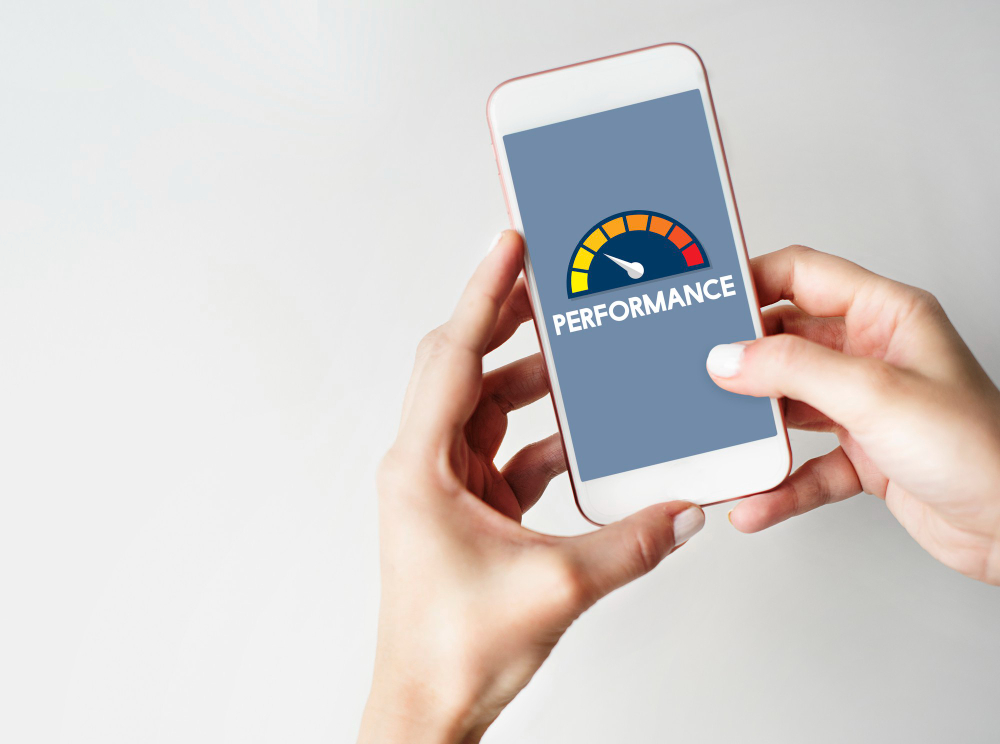New 02 Apr 2025
How to Improve Mobile App Speed & Performance

In today's fast-paced digital world, mobile app performance is crucial for user engagement, customer retention, and overall success. Slow and unresponsive apps lead to high bounce rates and negative reviews. Here are the best ways to optimize your mobile app speed and performance.
1. Optimize Mobile App Code
Reducing redundant code and optimizing scripts is essential for enhancing app performance. Keep your codebase clean, minimize dependencies, and avoid memory leaks to ensure a smooth experience for users.
2. Reduce App Load Time with Efficient Caching
Caching is a powerful technique to improve app speed. Store frequently accessed data in cache memory to reduce loading times and enhance user experience.
3. Use Lightweight & Compressed Images
High-resolution images can slow down your app. Use compressed images in WebP or JPEG format to maintain quality while reducing size, ensuring faster app performance.
4. Minimize HTTP Requests
Reducing the number of HTTP requests helps improve mobile app performance. Combine multiple requests into a single batch and optimize API calls to decrease response time.
5. Optimize Backend Performance
A well-optimized backend plays a significant role in mobile app speed. Ensure your server and database are optimized by using load balancing, caching mechanisms, and reducing redundant queries.
6. Use Content Delivery Networks (CDNs)
A CDN distributes your app’s content across multiple servers worldwide, reducing latency and improving performance for users across different locations, including the UAE.
7. Implement Lazy Loading
Lazy loading ensures that only visible content is loaded first, significantly improving app speed and performance. It prevents unnecessary resource consumption and enhances user experience.
8. Optimize Database Queries
Database optimization is essential for app performance. Use indexed searches, optimize SQL queries, and avoid unnecessary data retrieval to reduce response times.
9. Conduct Regular Performance Testing
Regular testing using tools like Google Lighthouse, Firebase Performance Monitoring, and Apache JMeter helps detect performance bottlenecks and optimize app speed efficiently.
10. Reduce Unused Features & Bloatware
Unnecessary features can slow down your mobile app. Remove unused code, libraries, and plugins to ensure a streamlined, high-speed experience.
11. Optimize Mobile App for Different Devices
Ensuring your mobile app is optimized for various screen sizes, resolutions, and operating systems enhances performance and provides a seamless user experience across all devices.
12. Utilize Efficient Data Management
Efficient data handling through proper data compression, JSON usage instead of XML, and local data storage techniques can drastically improve app performance.
13. Implement Asynchronous Processing
Using asynchronous APIs and background processing allows the app to handle multiple tasks simultaneously, improving overall speed and responsiveness.
14. Monitor and Analyze User Behavior
Monitoring app usage, crash reports, and analytics helps identify performance issues and optimize the app accordingly for better user experience.
Conclusion
Enhancing mobile app speed and performance is vital for providing a seamless user experience, increasing retention rates, and improving app rankings on the Play Store and App Store. Implement these optimization techniques to make your mobile app faster and more efficient.




